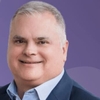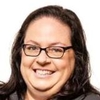- videocam On-Demand Webinar
- signal_cellular_alt Intermediate
- card_travel Patent
- schedule 90 minutes
Functional Claiming for Mechanical and Electrical Arts
Surviving 112(f), Navigating AI Challenges, and Disclosing Functional Basis to Meet Heightened Standard of Review
Welcome! Use code NEWYEAR26 to unlock 25% off all expert-led CLE, CPE, and Professional Skills webinars, and 10% off annual passes.
About the Course
Introduction
This CLE course will guide IP counsel on functional claiming in electrical and mechanical arts patents and USPTO prosecution. The panel will examine recent court treatment and how to navigate the issue of functionality given the uncertainties in the context of prosecution and litigation.
Description
In Williamson v. Citrix Online L.L.C. (2015), the Federal Circuit issued a decision relating to means-plus-function claims. This decision has had a dramatic impact on interpreting functional claim terms, regardless of whether construing claim language in prosecution, post-grant challenges at the PTAB, or district court litigation.
Patent law permits functional claiming in Section 112(f). The applicant must provide sufficient structure in the specification to perform any functional limitations. Since Williamson, patentees must meet a heightened standard of review by sufficiently disclosing the functional basis for patents in the electrical or mechanical arts. Further, practitioners are wrestling with the challenges of claiming artificial intelligence (AI)-related inventions.
Patent owners and their counsel must account for the heightened standards when drafting applications. In the Federal Circuit decision in American Axle v. Neapco (2020), Judge Chen noted that the lesson to patent drafters should now be clear: while not all functional claiming is the same, simply reciting a functional result at the point of novelty poses serious risks under Section 101.
Listen as our authoritative panel of patent attorneys discusses how the courts have addressed these issues in recent decisions. The panel will examine functional claiming in the context of patents in the mechanical and electrical arts. The panel will explore the benefits and risks involved with using functional claims and offer best practices for leveraging Section 112(f) and functional claims to maximize patent protection.
Presented By

Mr. Christensen’s IP practice focuses on assisting clients in protecting their inventions in both U.S. and foreign patent offices in a variety of technical fields, including optics, additive manufacturing, aerospace systems, consumer and industrial products, and renewable energy systems. He also has significant experience in assisting clients in developing cost effective strategies for managing risk in their developing of new products, and the building and managing their IP. Mr. Christensen further counsels startup to medium-sized clients in preparing their portfolios for investment financing and associated due diligence activities. He is active in thought leadership, especially related to how technology is changing both manufacturing and legal business operations and regularly presents at webinars and authors articles on a variety of law practice management and IP topics.

Ms. Stadheim focuses her practice on drafting and prosecuting patent applications within the areas of wireless technologies, cryptography, artificial intelligence, machine learning, and memory devices. She first became interested in patent law when she was an engineer within electrical and software development. In her roles Ms. Stadheim has interacted with in-house patent attorneys and was drawn to better understanding how to protect innovation. She is a former Patent Law Committee Chair with the AIPLA.
-
This 90-minute webinar is eligible in most states for 1.5 CLE credits.
-
Live Online
On Demand
Date + Time
- event
Thursday, June 20, 2024
- schedule
1:00 p.m. ET./10:00 a.m. PT
- Review of the recent decisions and how the courts have applied them
- Functional claiming in the mechanical arts
- Functional claiming in the electrical arts
- Benefits and risks involved with using functional claims
- AI challenges – How to claim an AI-related invention and provide specification support in view of functional claiming challenges
- Best practices for leveraging Section 112(f) and functional claims for maximum patent protection
The panel will review these and other key issues:
- What are the risks of a 112(f) interpretation for the patentee?
- What is sufficient structure for supporting 112(f) claims?
- What are best practices for drafting specifications to support functional claims?
Unlimited access to premium CLE courses:
- Annual access
- Available live and on-demand
- Best for attorneys and legal professionals
Unlimited access to premium CPE courses.:
- Annual access
- Available live and on-demand
- Best for CPAs and tax professionals
Unlimited access to premium CLE, CPE, Professional Skills and Practice-Ready courses.:
- Annual access
- Available live and on-demand
- Best for legal, accounting, and tax professionals
Unlimited access to Professional Skills and Practice-Ready courses:
- Annual access
- Available on-demand
- Best for new attorneys
Related Courses

Design Patent Protection for Replacement Parts: Drafting Design Applications, Differences Between U.S. and European Treatment
Tuesday, February 10, 2026
1:00 p.m. ET./10:00 a.m. PT

Back to the Future: Patent Reexamination as a PTAB Alternative
Wednesday, February 25, 2026
1:00 PM E.T.

Section 1498 vs. March-In Rights: Scope, Procedural Mechanisms, Practical Consequences, Litigation Developments
Thursday, March 12, 2026
1:00 PM E.T.



